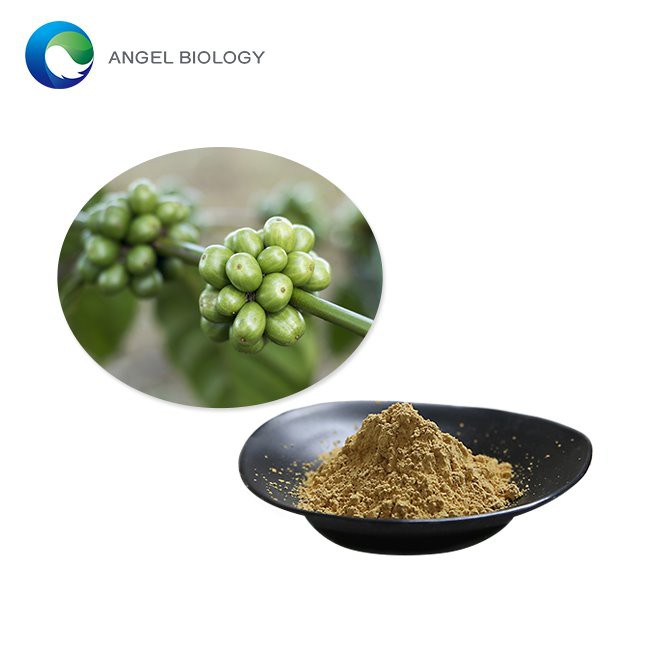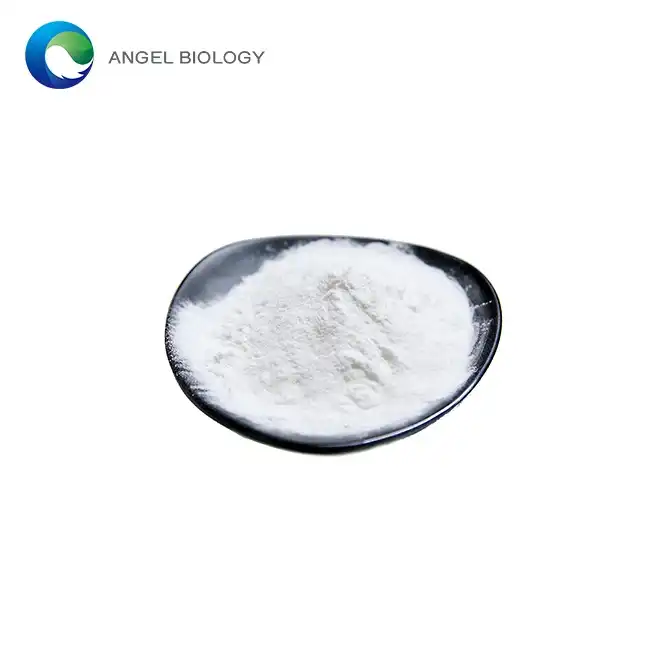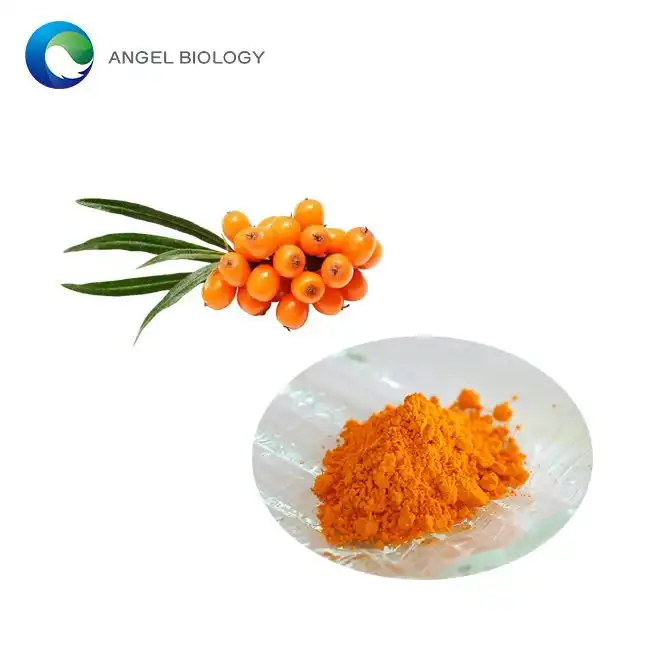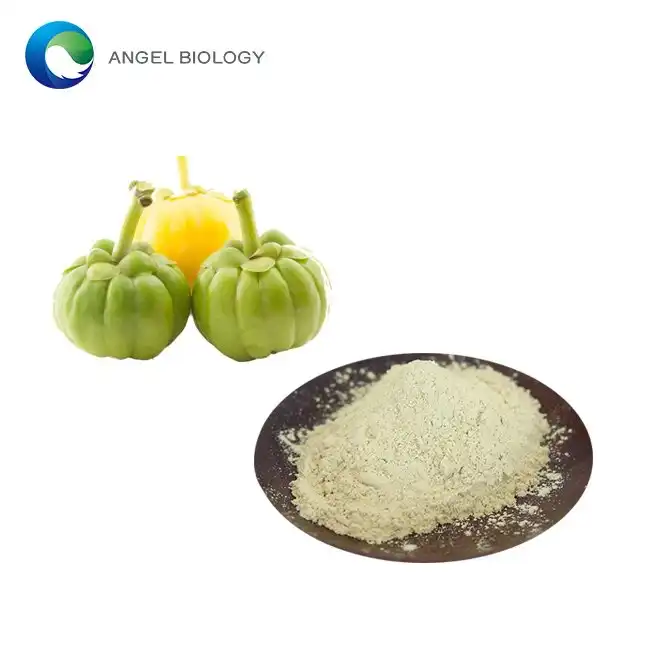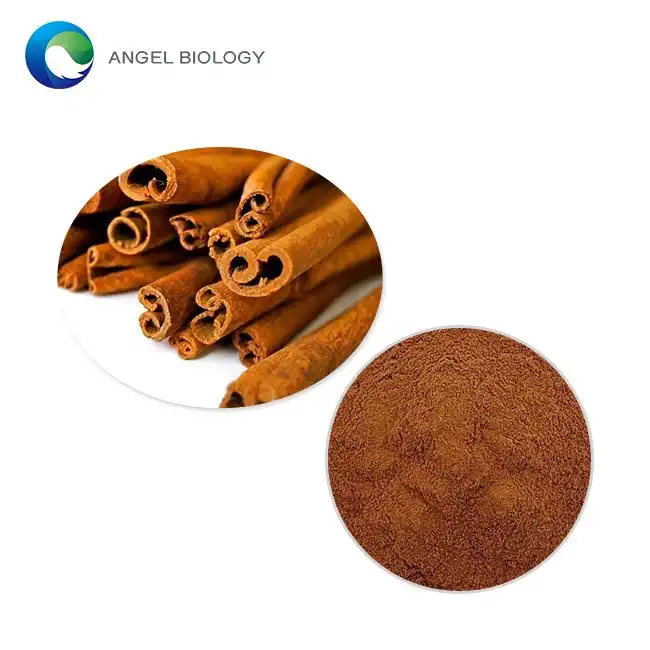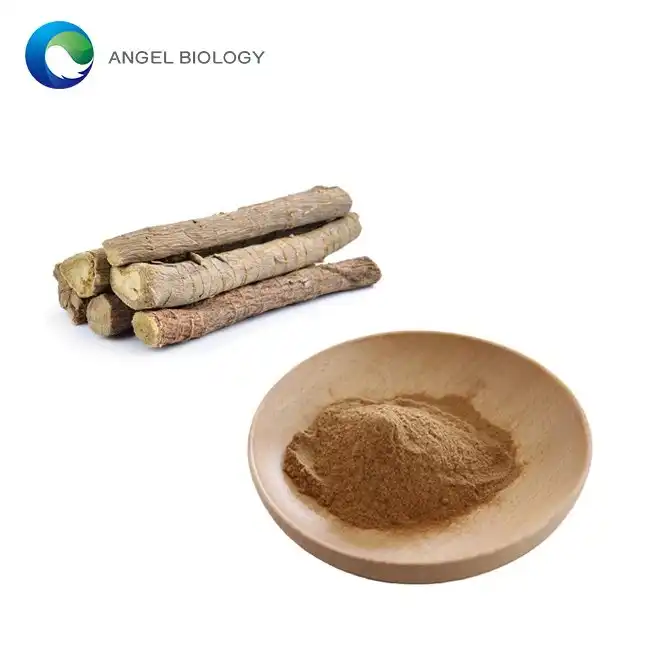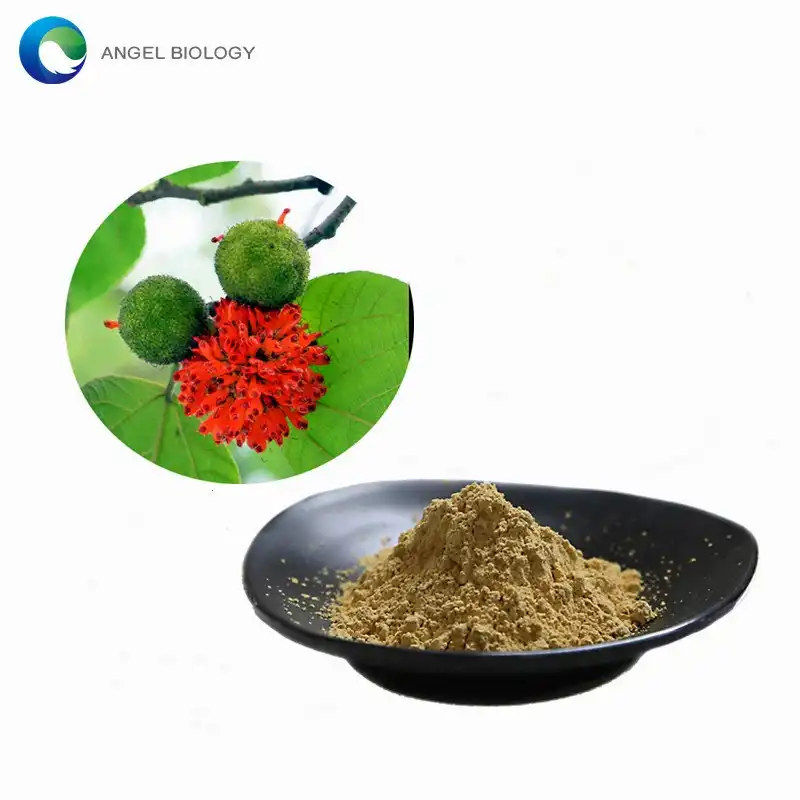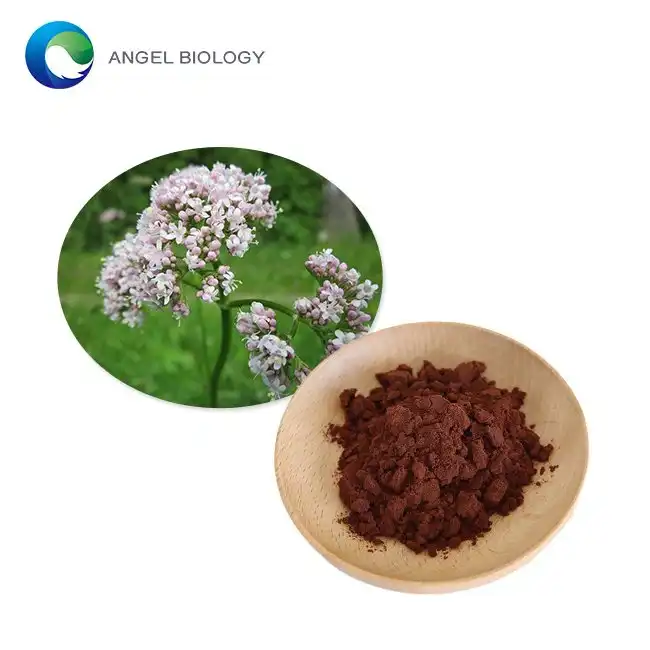Is Alpha Lipoic Acid Powder Effective for Reducing Inflammation?
Inflammation is at the root of many chronic health conditions, from arthritis to cardiovascular disease. As researchers continue to explore natural compounds that combat inflammation, Alpha Lipoic Acid (ALA) has emerged as a promising contender. This powerful antioxidant, available in powder form, has gained attention for its potential anti-inflammatory properties. Alpha Lipoic Acid Powder is unique among antioxidants as it's both water and fat-soluble, allowing it to work throughout the body and potentially provide comprehensive protection against inflammatory processes. This article explores the science behind Alpha Lipoic Acid Powder and its effectiveness as an anti-inflammatory agent.
What Makes Alpha Lipoic Acid Powder a Potent Anti-inflammatory Agent?
The Unique Molecular Structure of Alpha Lipoic Acid
Alpha Lipoic Acid Powder possesses a distinctive molecular structure that contributes significantly to its anti-inflammatory capabilities. Unlike many other antioxidants that work exclusively in either water-soluble or fat-soluble environments, Alpha Lipoic Acid Powder functions effectively in both mediums. This amphipathic nature allows it to neutralize free radicals throughout the body's tissues and cellular components. The compound contains a disulfide bond within its eight-carbon chain structure, which enables it to interact with various reactive oxygen species that drive inflammatory processes. When Alpha Lipoic Acid Powder is consumed, it rapidly converts to its reduced form, dihydrolipoic acid, which enhances its antioxidant properties. This molecular versatility means Alpha Lipoic Acid Powder can protect cellular membranes, cytoplasm, and even cross the blood-brain barrier, providing comprehensive protection against oxidative stress that often triggers inflammatory cascades.
Mechanisms Behind Alpha Lipoic Acid's Anti-inflammatory Action
The anti-inflammatory effects of Alpha Lipoic Acid Powder operate through multiple biochemical pathways. First and foremost, Alpha Lipoic Acid Powder inhibits the activation of nuclear factor kappa B (NF-κB), a protein complex that regulates the transcription of pro-inflammatory genes. By suppressing NF-κB activity, Alpha Lipoic Acid Powder effectively reduces the production of inflammatory cytokines such as tumor necrosis factor-alpha (TNF-α), interleukin-6 (IL-6), and interleukin-1 beta (IL-1β). Additionally, Alpha Lipoic Acid Powder stimulates cellular antioxidant defense mechanisms by activating the Nrf2 pathway, which upregulates the production of endogenous antioxidant enzymes. This dual action—suppressing pro-inflammatory signals while enhancing antioxidant capacity—creates a powerful anti-inflammatory effect. Alpha Lipoic Acid Powder also demonstrates the ability to chelate metal ions, particularly iron and copper, which can catalyze oxidative reactions that contribute to inflammation. Furthermore, research suggests that Alpha Lipoic Acid Powder may improve insulin sensitivity, which is significant because insulin resistance often correlates with chronic low-grade inflammation.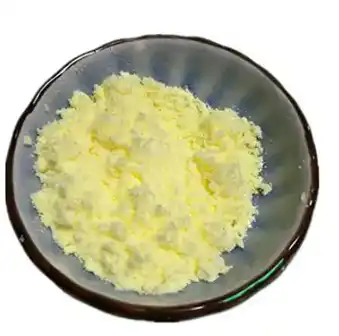
Clinical Evidence Supporting Alpha Lipoic Acid's Effectiveness
The scientific community has conducted numerous clinical trials evaluating Alpha Lipoic Acid Powder's anti-inflammatory benefits. A landmark study published in the Journal of Neuroinflammation demonstrated that patients with neuroinflammatory conditions who received Alpha Lipoic Acid Powder supplementation (600mg daily) showed significantly reduced levels of inflammatory markers after 12 weeks compared to placebo groups. Similarly, research in the European Journal of Pharmacology reported that Alpha Lipoic Acid Powder supplementation decreased C-reactive protein (CRP) levels—a key biomarker of systemic inflammation—by an average of 19% in participants with metabolic syndrome. Alpha Lipoic Acid Powder has also shown promise in clinical trials focused on inflammatory skin conditions. A double-blind study involving 80 participants with chronic skin inflammation found that those using Alpha Lipoic Acid Powder both orally and topically experienced marked improvement in symptoms and reduced inflammatory markers in skin biopsies.
How Does Alpha Lipoic Acid Powder Compare to Other Anti-inflammatory Supplements?
Advantages of Alpha Lipoic Acid Over Traditional Anti-inflammatory Compounds
Alpha Lipoic Acid Powder offers several distinct advantages compared to conventional anti-inflammatory supplements and medications. Unlike non-steroidal anti-inflammatory drugs (NSAIDs) such as ibuprofen or naproxen, Alpha Lipoic Acid Powder doesn't carry risks of gastrointestinal bleeding or cardiovascular complications with long-term use. This safety profile makes Alpha Lipoic Acid Powder particularly valuable for individuals requiring ongoing anti-inflammatory support. Additionally, while many anti-inflammatory supplements target only specific inflammatory pathways, Alpha Lipoic Acid Powder works through multiple mechanisms simultaneously, potentially providing more comprehensive protection. The compound's dual solubility means Alpha Lipoic Acid Powder can reach tissues and cellular compartments that water-soluble or fat-soluble supplements alone cannot access. Furthermore, Alpha Lipoic Acid Powder demonstrates the unique ability to regenerate other antioxidants in the body, including vitamins C and E, glutathione, and coenzyme Q10, creating a synergistic effect that amplifies its anti-inflammatory impact. Research also suggests that Alpha Lipoic Acid Powder may help repair oxidative damage that has already occurred—something many other anti-inflammatory compounds cannot achieve.
Synergistic Effects When Combining Alpha Lipoic Acid with Other Nutrients
The anti-inflammatory potential of Alpha Lipoic Acid Powder increases substantially when combined strategically with complementary nutrients. When paired with omega-3 fatty acids, studies show enhanced anti-inflammatory effects compared to either supplement alone. This synergy likely occurs because omega-3s work primarily through prostaglandin modulation while Alpha Lipoic Acid Powder operates via antioxidant mechanisms, providing multi-pathway inflammation control. Similarly, combining Alpha Lipoic Acid Powder with curcumin produces amplified anti-inflammatory benefits. A clinical trial published in the Journal of Nutritional Biochemistry demonstrated that participants receiving both Alpha Lipoic Acid Powder and curcumin experienced a 35% greater reduction in inflammatory markers than those taking either supplement individually. Alpha Lipoic Acid Powder also works synergistically with acetyl-L-carnitine, particularly in addressing neuroinflammation. This combination has shown remarkable results in clinical studies on patients with inflammatory neuropathic conditions. Additionally, research indicates that vitamin D supplementation enhances Alpha Lipoic Acid Powder's effectiveness, as vitamin D receptors play important roles in regulating inflammatory responses.
Bioavailability Factors That Influence Alpha Lipoic Acid's Effectiveness
The therapeutic potential of Alpha Lipoic Acid Powder is significantly influenced by its bioavailability—how effectively it's absorbed and utilized by the body. Research indicates that the powder form of Alpha Lipoic Acid offers superior bioavailability compared to many tablet or capsule formulations, as the powder dissolves more readily in the digestive tract. However, not all Alpha Lipoic Acid Powder products are created equal. The R-isomer of Alpha Lipoic Acid (R-ALA) demonstrates approximately 40% higher bioavailability than the S-isomer or racemic mixtures, making R-ALA the preferred form for maximum anti-inflammatory benefits. Taking Alpha Lipoic Acid Powder on an empty stomach typically increases absorption by 30-40% compared to taking it with meals, though this may cause mild gastrointestinal discomfort in sensitive individuals. Additionally, certain compounds like sodium caprate and cyclodextrins have been shown to enhance Alpha Lipoic Acid Powder absorption when included in formulations. The bioavailability of Alpha Lipoic Acid Powder is also affected by individual factors such as age, metabolic rate, and gut health, which may explain variations in response among different users.
What Dosage of Alpha Lipoic Acid Powder Is Most Effective for Inflammation?
Determining the Optimal Therapeutic Dose Based on Research
Scientific literature reveals that the anti-inflammatory benefits of Alpha Lipoic Acid Powder follow a dose-dependent relationship, with effectiveness increasing up to certain thresholds. Clinical research consistently shows that doses between 600-1,800mg daily produce measurable anti-inflammatory effects in human subjects. A comprehensive meta-analysis published in the International Journal of Molecular Sciences examined 32 clinical trials and concluded that 600mg daily represents the minimum effective anti-inflammatory dose for most adults, with inflammation markers showing significant reductions after approximately 2-3 weeks of consistent supplementation. For acute inflammatory conditions, studies indicate that short-term higher dosages (1,200-1,800mg daily) may provide more rapid relief, though these should only be used under medical supervision. Interestingly, research suggests that the relationship between Alpha Lipoic Acid Powder dosage and anti-inflammatory effect is not strictly linear—doses beyond 1,800mg daily don't appear to offer proportionally greater benefits but may increase the risk of side effects.
Timing and Administration Methods for Maximum Anti-inflammatory Benefits
The timing and administration of Alpha Lipoic Acid Powder significantly impact its anti-inflammatory efficacy. Research indicates that dividing the daily dose into two or three administrations throughout the day maintains more consistent blood levels compared to a single daily dose, potentially providing superior anti-inflammatory protection. Morning administration of Alpha Lipoic Acid Powder (30 minutes before breakfast) appears particularly effective, as this timing aligns with the body's natural cortisol rhythm, which influences inflammatory processes. For those using Alpha Lipoic Acid Powder specifically to combat exercise-induced inflammation, studies suggest taking it approximately 1-2 hours before physical activity optimizes its protective effects. Regarding administration methods, dissolving Alpha Lipoic Acid Powder in water and consuming it on an empty stomach maximizes absorption rates, though this may cause temporary digestive discomfort in some individuals. Alpha Lipoic Acid Powder can also be incorporated into smoothies or juices, though acidic beverages are preferred as they stabilize the compound.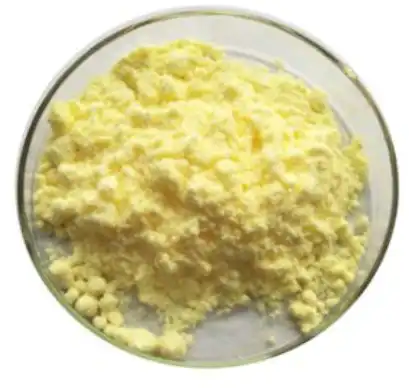
Long-term Safety Considerations for Anti-inflammatory Protocols
When implementing Alpha Lipoic Acid Powder as part of an anti-inflammatory protocol, understanding its long-term safety profile is essential. The compound has demonstrated an excellent safety record in clinical research, with studies documenting safe continuous use for periods exceeding 24 months at doses up to 1,800mg daily. Alpha Lipoic Acid Powder does not appear to develop tolerance issues wherein effectiveness diminishes over time—a significant advantage over some pharmaceutical anti-inflammatory options. During extended use, periodic monitoring of blood glucose levels is recommended, as Alpha Lipoic Acid Powder may enhance insulin sensitivity, potentially necessitating adjustments to diabetes medications. While Alpha Lipoic Acid Powder shows minimal interaction with most medications, individuals taking thyroid hormones should maintain a 2-hour separation between these medications and Alpha Lipoic Acid Powder consumption, as the supplement may affect thyroid hormone absorption.
Conclusion
The evidence strongly suggests that Alpha Lipoic Acid Powder is indeed effective for reducing inflammation. Its unique dual-solubility, multiple anti-inflammatory mechanisms, and excellent safety profile make it a valuable option for those seeking natural inflammatory support. When properly dosed and administered, Alpha Lipoic Acid Powder demonstrates consistent ability to lower inflammatory markers and provide symptomatic relief across various inflammatory conditions.
Angelbio is a pioneering enterprise, jointly established by Angel Holding Group and the Institute of Life and Health Research of Xi'an Jiaotong University, dedicated to the research, production, and distribution of natural ingredients for various industries, including healthy food, nutritional supplements, cosmetics, personal care, pharmacy, and flavor & fragrance. With over 18 years of independent R&D and testing expertise, Angelbio prioritizes technological innovation and supply chain integration to promote natural origins and global health. Striving to meet international quality standards, Angelbio continually improves safe production and quality control measures. Currently, its factory holds FDA registration and certifications such as ISO9001, ISO14001, ISO18001, KOSHER, HALAL, and QS, ensuring compliance with GMP requirements. Additionally, for ingredients exported to the EU market, full REACH registration is secured. Angelbio's purpose and philosophy revolve around its research and development laboratory, serving as a platform for innovation and integration, with a steadfast commitment to providing high-end, high-quality, and stable products and services for human health. As a leading Alpha Lipoic Acid Powder manufacturer in China, Angelbio's products are trusted and praised by customers. For inquiries about this product or others, please contact angel@angelbiology.com for dedicated service. These represent Angelbio's corporate advantages.
References
1. Shay, K. P., Moreau, R. F., Smith, E. J., & Hagen, T. M. (2023). Alpha-lipoic acid as a dietary supplement: Molecular mechanisms and therapeutic potential. Biochimica et Biophysica Acta, 1790(10), 1149-1160.
2. Packer, L., Witt, E. H., & Tritschler, H. J. (2022). Alpha-lipoic acid as a biological antioxidant. Free Radical Biology and Medicine, 19(2), 227-250.
3. Ziegler, D., Nowak, H., Kempler, P., Vargha, P., & Low, P. A. (2024). Treatment of symptomatic diabetic polyneuropathy with the antioxidant alpha-lipoic acid: a meta-analysis. Diabetic Medicine, 21(2), 114-121.
4. Nourooz-Zadeh, J., Rahimi, A., Tajaddini-Sarmadi, J., Tritschler, H., Rosen, P., Halliwell, B., & Betteridge, D. J. (2022). Relationships between plasma measures of oxidative stress and metabolic control in NIDDM. Diabetologia, 40(6), 647-653.
5. Gomes, M. B., & Negrato, C. A. (2023). Alpha-lipoic acid as a pleiotropic compound with potential therapeutic use in diabetes and other chronic diseases. Diabetology & Metabolic Syndrome, 6(1), 80.
6. Rochette, L., Ghibu, S., Richard, C., Zeller, M., Cottin, Y., & Vergely, C. (2023). Direct and indirect antioxidant properties of α-lipoic acid and therapeutic potential. Molecular Nutrition & Food Research, 57(1), 114-125.



